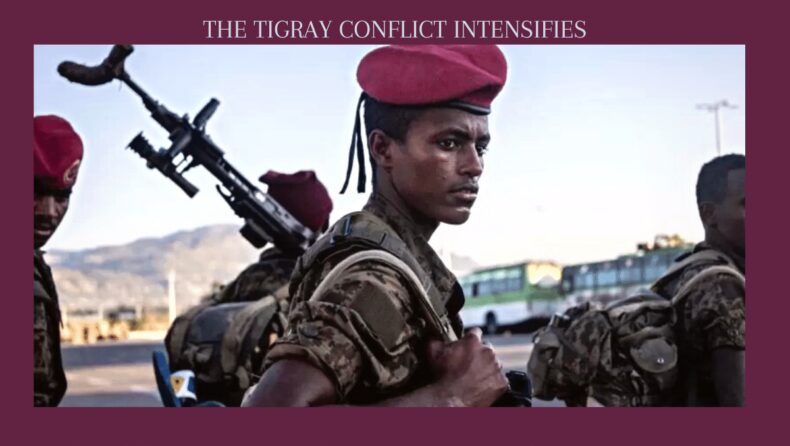The nation is in turmoil due to a dispute between the Ethiopian government and factions in its north Tigray region and is now striking an alarm about the forthcoming violence.
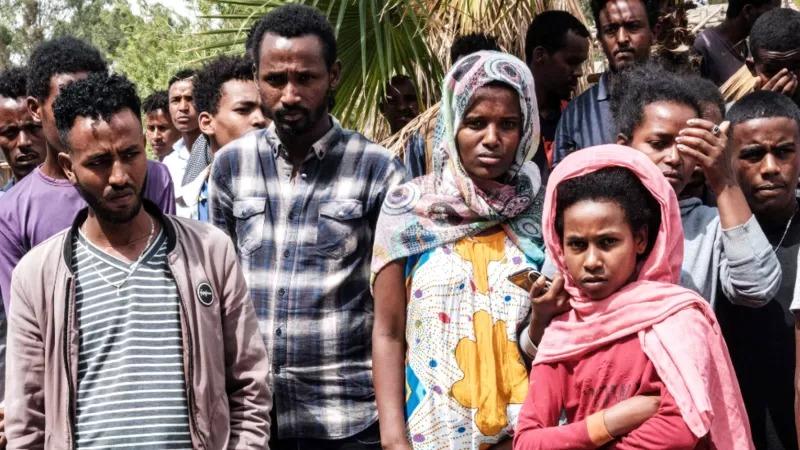
Ethiopia is the second most populous and oldest independent nation in Africa.
Since November 2020, fighting has been rocking the populated nation within the Horn of Africa, leaving thousands dead and 350,000 others suffering from famine.
The conflict is between the Ethiopian Federal Government and Eritrea fighting against the Tigray People’s Liberation Front (TPLF) withstanding the collective forces.
Many factors have propelled the ongoing crisis including a power tussle, forthcoming elections and political reform fueling crisis.
Tigray Conflict and violence in Ethiopia: Tracing the roots of the crisis
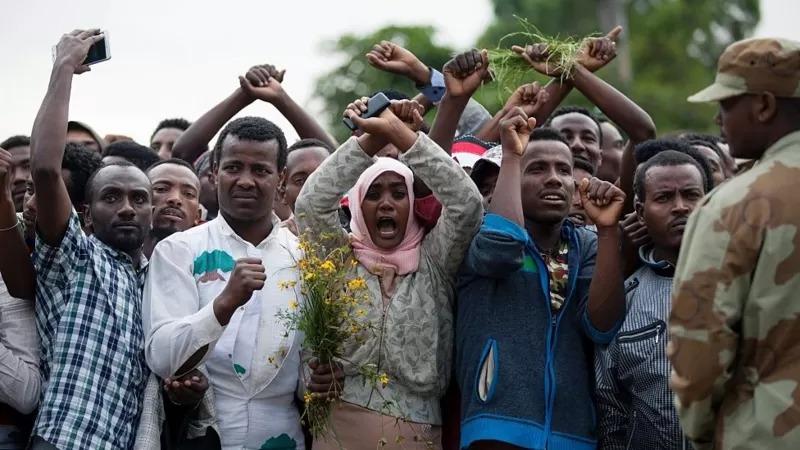
The Tigray People’s Liberation Front (TPLF) and the federal government are again engaged in a full-scale war in Ethiopia.
A military offensive against local forces in Tigray was ordered by Ethiopian Prime Minister Abiy Ahmed on November 4 in reaction to an attack on a base housing government troops, according to Abiy Ahmed.
The government of Mr Abiy and the leaders of Tigray’s largest political party had been at odds for months before Mr Abiy, who was elected in 2018 following anti-government protests, sidelined the party. The party had held the centre of power for nearly three decades.
The conflict between Mr Abiy’s administration and the leaders of Tigray’s largest political party had been simmering for months before it erupted.
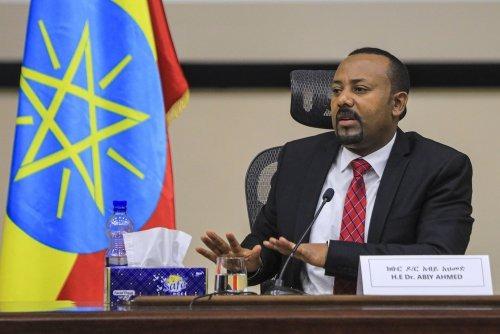
https://news.un.org/en/story/2022/10/1129572
The transformation of the governing system in Ethiopia is a major cause of the conflict. Ethnic minorities have controlled the regions of the country since 1994 and the Tigray People’s Liberation Front (TPLF) – was important in establishing this scheme, leading a four-party coalition.
After periodic success, questions about the level of democracy and human rights surfaced. The subsequent dissatisfaction led to protests that unstabilized the country, causing the government to change and leading to Mr Abiy Ahmed becoming the prime minister.
In liberalising the country’s politics, Abiy dismissed several Tigrayan leaders under charges of fraud and suppression. The actions were perceived as acts of centralizing power and a threat to the federal system.
When Tigray refused Mr Abiy’s reform efforts, the political crisis turned into a war.
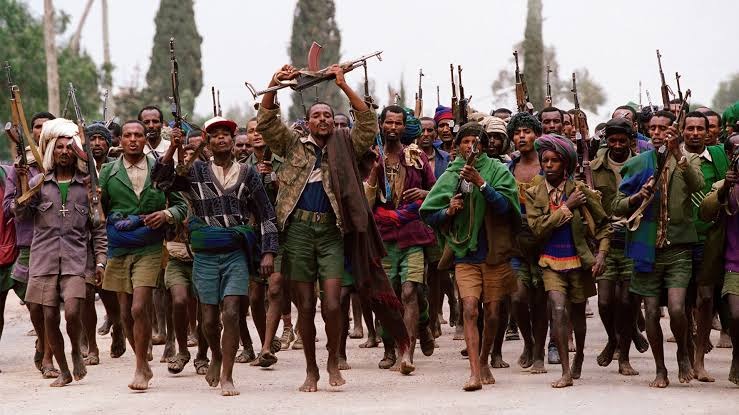
Also, Tigray’s defiance of the central government by carrying its regional elections triggered the crisis in September. This led to the central government discontinuing the funding for Tigray and terminating links, further exacerbating the overwrought situation.
As the situation escalated and the tension brewed, the Tigrian troops were convicted of stealing weapons by attacking the army bases, which led to a military confrontation.
Tigray Conflict: Humanitarian crisis unfolds in Ethiopia as the turmoil rises
On Tuesday, as fighting in Tigray escalated, the UN office for human rights voiced its concern about reports of civilian deaths and intentional “targeting” of civilians.
“Violence and destruction have reached alarming levels; the social fabric is being ripped apart.Hostilities in the Tigray region of Ethiopia must end now – including the immediate withdrawal and disengagement of Eritrean armed forces from Ethiopia.”
Antonio Guterres told reporters at U.N. headquarters.
In August, fighting between federal and Tigray forces resumed after it had stopped in March to allow much-needed relief to reach the area.
Thousands of individuals are thought to have died since the battle began in November 2020, uprooting millions of people from their homes in northern Ethiopia, particularly the neighbouring areas of Amhara and Afar.
The ongoing conflict has led to a humanitarian crisis as mass hunger and medical care scarcity is endangering the lives of thousands of people in Tigray. As enormous offences impair the region and the blockade has left a population of 1 million people at risk of starvation.
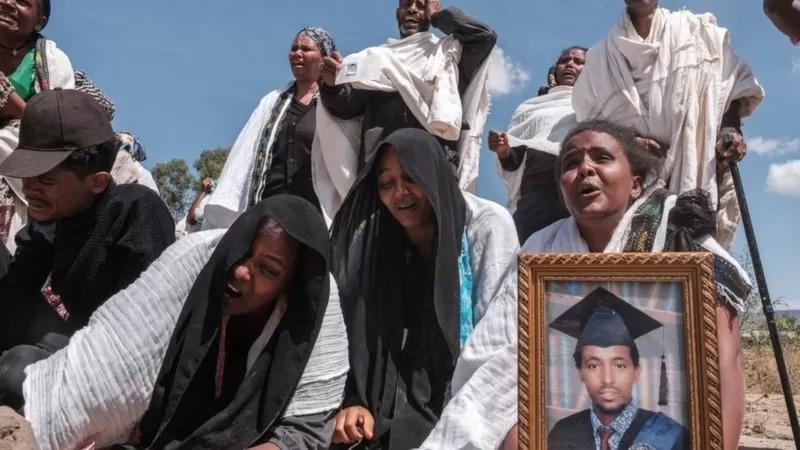
A seventeen-month-long blockade with intensive conflict for the last five months has left thousands displaced and miserable.
As more and more people join the conflict with fear of the movement being restrained and the possible consequences of the penalty, the conflict is raising the alarm for forthcoming violence.
“Any limitations to the ability to transport and move around and communicate tends to heighten an existing situation such as the humanitarian situation is ongoing right now in Ethiopia.”
Hassan Khannenje, The head of the Horn International Institute for Strategic Studies in conversation with VAO News.
In Tigray, a scarcity of energy and a communication blackout is impeding the distribution of aid, with violence, hunger and desperation coming to be a familiar sight.







